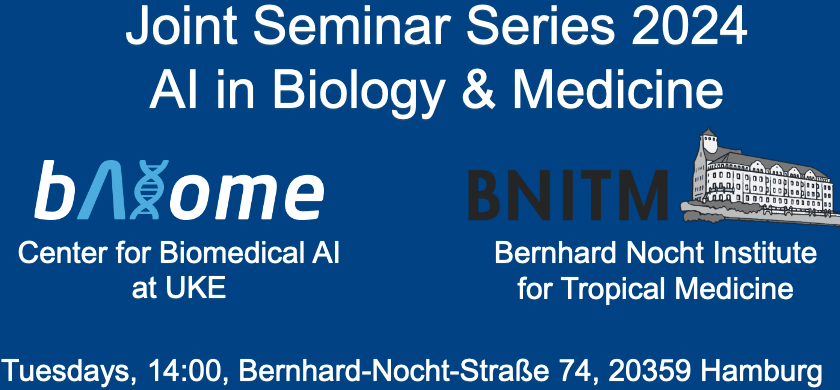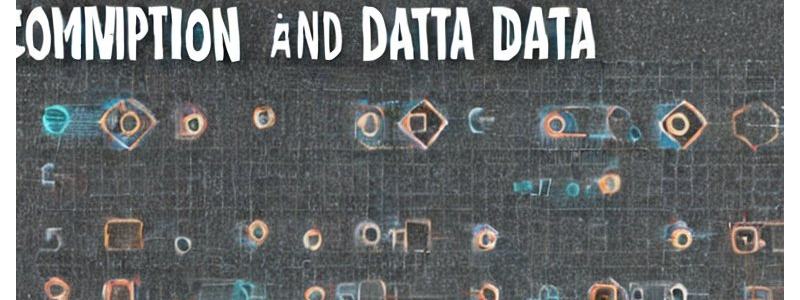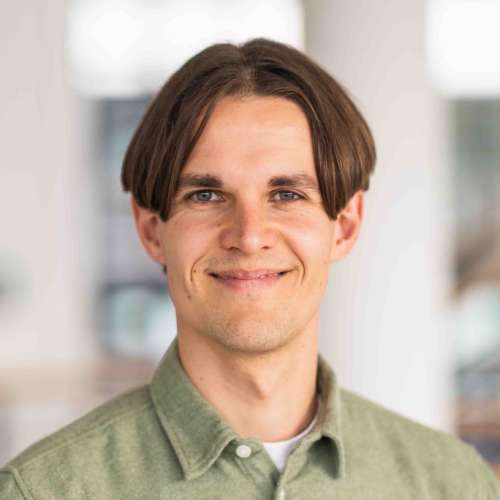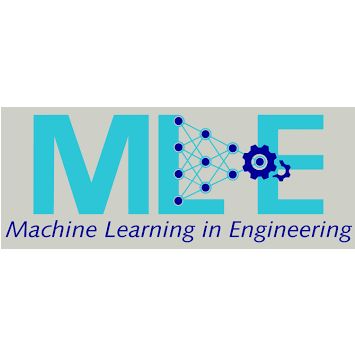The course is especially useful as the trainer, Dr. Christoph Rosemann, is a trained physicist who also works at DESY and is keen on supporting researchers to cope with specific computational challenges in their field of research.

bAIome Center for biomedical AI (UKE) and Bernhard Nocht Institute for Tropical Medicine (BNITM) will host the seminar series entitled “AI in biology and Medicine”. This series aims to capture a broad audience and promote cross institutional collaboration. Our expert speakers will give an overview and insight into particular AI/data science methods being developed in key areas of biology and medicine. We will have drinks and snacks following each seminar to facilitate exchange.
Lorenz Adlung, I Medical Clinic and Polyclinic, UKE: Machine learning of MCMV infection dynamics
For further details and hybrid links, please go to the webpage AI in Biology & Medicine

Diese Veratstaltungsreihe richtet sich an Teilnehmer:innen aus den Bereichen Wissenschaft & Forschung und die öffentliche Hand. Wir möchten Sie herzlich dazu einladen, an diesem Tag anwesend zu sein und an den Diskussionen und Matchmaking Aktivitäten und einem abschließendem Worlcafé teilzunehmen. Die Veranstaltung bietet die Möglichkeit, wertvolle Kontakte zu knüpfen, Ihr Wissen zu erweitern und innovative Ideen auszutauschen. Nehmen Sie diese Gelegenheit wahr, um gemeinsam mit Expert:innen und Fachleuten aus der Branche neue Impulse auch mit Hinblick auf die UITP Summits 2025 und 2027 in Hamburg zu setzen.
Wir werden Ihnen nach der Sommerpause weitere Informationen zur Agenda und zur Anmeldung zukommen lassen. Sollten Sie bereits jetzt Fragen oder Anregungen haben, zögern Sie nicht, sich mit uns in Verbindung (pmo@new-mobility-solutions.de) zu setzen. Wir stehen Ihnen gerne zur Verfügung.
Institutions

This symposium aims to bring together researchers from the interdisciplinary fields of machine learning and data-driven methods with mechanical dynamics to foster collaboration and promote the adoption of hybrid algorithms in engineering applications. We anticipate presentations from academic institutions and industry, reflecting the growing prominence of data-driven approaches in science-based decision-making. Topics of interest include, but are not limited to:
We look forward to receiving contributions to this mini-symposium for a lively exchange in this important aspect of research!
Abstract submission is currently open until April 17, 2025. Further instructions and templates are available on the conference homepage: https://colloquia.gacm.de/organisation.
Institutions

Professor Bast completed her Ph.D. and Habilitation at the MPI for Informatics in Saarbrücken. She is a professor for computer science at the University of Freiburg since 2009. Her research focus is on all kinds of intelligent search in large data sets, with and without AI. The search technology developed in her group is used worldwide on a daily basis. During an extended research stay at Google, she developed a new public transport route planner for Google Maps. She has served as Dean of the Faculty of Engineering, and is still serving as Dean of Studies and Senator of the university. She was a member of the German Bundestag's Enquete Commission on Artificial Intelligence. She is a member of the committee that is responsible for the evaluation of the German Leibniz Institutes. She has received various research and teaching awards.
She is going to talk about QLever, which is a new SPARQL engine and triple store developed by her group, with several unique features. Notably, QLever is very fast, can handle hundreds of billions of triples on a standard PC, supports the incremental construction of SPARQL queries via context-sensitive autocompletion, supports SPARQL+Text queries on text linked to a knowledge graph, and supports very fast spatial joins on very large numbers of geometric objects as well as the visualization of very many such objects on a map. She will show many examples and demos, some performance comparisons with other engines, and will also take a look at what's under the hood. If time permits, she might also talk about the automatic translation of natural language questions to SPARQL queries via large language models, and about entity linking . Also a word or two about the rewards and challenges of writing and maintaining software that actually works in academia.
Institutions

PIER will host its annual PIER Day at the Bahrenfeld campus.
The event will showcase recent and ongoing joint research activities between DESY and the University of Hamburg (UHH) funded by PIER, as well as explore future collaboration opportunities. A special focus this year will be on AI & Data Science, organized in collaboration with PIER PLUS.
The program includes:
Institutions

The 6th preCICE Workshop will be held at the Helmut-Schmidt University of Hamburg on September 8-12, 2025. The workshop is a coming together of the preCICE community to share ideas, experiences and knowledge about using preCICE, and to learn from others in the process. Like always, we plan to have user and developer talks, hands-on training sessions, discussions with the developers about your applications and use cases, and plenty of opportunities for networking. Read more about how a preCICE workshop looks like.
The workshop will include a hands-on training course. The course is suited for both beginners and current preCICE users, since advanced topics will also be covered. We will extend the course by a new module on HPC.
In the developer talks, the maintainer team will present recent updates on dynamic meshes, mesh-particle coupling, and macro-micro coupling – to only mention a few highlights. And we will continue the standardization process of adapters and application cases, where you can help shaping the future.
Keep watching this space for updates on registration, the workshop program, and more.
Call for contributions
We are looking for talks and posters that could be beneficial for the wider preCICE community. Are you developing a new adapter (such as for G+Smo or ISSM last year)? Are you using preCICE for an exciting new application? Are you developing new methods that should not be missing from preCICE? If the answer to any of these questions was yes, we encourage you to submit a brief abstract for a 20 minutes talk. Are you revisiting one of the classical preCICE use cases? Did you already present your work in a previous workshop? Then we would be very happy to catch up with your work and we encourage you to present a poster. You do not need to submit a contribution to join this workshop. However, your contributions are very welcome!

bAIome Center for biomedical AI (UKE) and Bernhard Nocht Institute for Tropical Medicine (BNITM) will host the seminar series entitled “AI in biology and Medicine”. This series aims to capture a broad audience and promote cross institutional collaboration. Our expert speakers will give an overview and insight into particular AI/data science methods being developed in key areas of biology and medicine. We will have drinks and snacks following each seminar to facilitate exchange.
Fatemeh Hadaeghi,Institute of Computational Neuroscience, UKE
For further details and hybrid links, please go to the webpage AI in Biology & Medicine

The presentation series “Train your engineering network” (TYEN) on diverse topics of Machine Learning addresses all interested persons at TUHH, from MLE partners as well as from the Hamburg region in general and aims at promoting the exchange of information and knowledge between these persons as well as their networking in a relaxed atmosphere. Thereby, the machine learning activities within MLE, TUHH and in the wider environment shall be made more visible, cooperations shall be promoted and also interested students shall be given an insight.
Organisers:
The series will be continued in the summer semester 2025. If you are interested in presenting, please contact the organizers.
The lectures will be in English.


In the digital transformation of science, research data is an essential basis of the research process and as diverse as the subject cultures in which they are created and used. In data-based or data-driven research, computational methods can be used to scale and transform the research process.
As a scientist, you should store your research data in a secure technical environment using established standards and compliance with data protection regulations. When using computer-aided methods - from statistics to artificial intelligence - and in interdisciplinary research and use of innovative digital methods, you need advice from an expert.
What does this mean in concrete terms for scientific practice? The experts give concrete tips and answer your questions. In addition, the participants have the opportunity to exchange perspectives, challenges and best practice examples and to be inspired.
All interested parties are invited to find out more about the services of the Center for Sustainable Research Data Management (CRDM) and - this time also present - the House of Computing and Data Science (HCDS) at Universität Hamburg from 12 p.m.
The information event is open to the university. Registration is free. The event will take place in German.
Part 1: "Adapter Fairness": "Current natural language processing (NLP) research tends to focus on only one or, less frequently, two dimensions -- e.g., performance, privacy, fairness, or efficiency -- at a time, which may lead to suboptimal conclusions and often overlooking the broader goal of achieving trustworthy NLP. Work on adapter modules focuses on improving performance and efficiency, with no investigation of unintended consequences on other aspects such as fairness. To address this gap, we conduct experiments on three text classification datasets by either (1) finetuning all parameters or (2) using adapter modules."
Part 2: "Knowledge Distillation vs. Pretraining from Scratch under a Fixed (Computation) Budget”: "Compared to standard language model (LM) pretraining (i.e., from scratch), Knowledge Distillation (KD) entails an additional forward pass through a teacher model that is typically substantially larger than the target student model. As such, KD in LM pretraining materially slows down throughput of pretraining instances vis-a-vis pretraining from scratch. Scaling laws of LM pretraining suggest that smaller models can close the gap to larger counterparts if trained on more data (i.e., processing more tokens)—and under a fixed computation budget, smaller models are able be process more data than larger models. We thus hypothesize that KD might, in fact, be suboptimal to pretraining from scratch for obtaining smaller LMs, when appropriately accounting for the compute budget.”
Part 3: Most likely, Duc will also discuss the ideas we have for his research stay with us (~Cross-cultural Hate Speech). Feedback is highly welcome!
Short Bio
I'm a PhD student at JGU Mainz, advised by Katharina von der Wense. My research focuses on analyzing and developing techniques that balance efficiency and fairness in NLP models. While numerous approaches have been developed to enhance the resource efficiency,
their impact on model fairness remains largely unclear. Prior to this, I completed my bachelor's degree in "Mathematics in Business and Economics", and subsequently pursued a master's degree in "Data Science" with a strong emphasis on NLP. Following the completion
of my master's degree, I transitioned into the industry, where I worked as a data scientist in the autonomous driving field.
Institution

Austauschen und Netzwerken - für Gestalter:innen des digitalen Gesundheitswesens
Wie können wir Digitalstrategien im Gesundheitsbereich neu denken? Und welche Chancen und Herausforderungen hält das Thema Digital Health für Gründerinnen und Gründer bereit? Der »Roof Talk Digital Health« bietet zu diesen und ähnlichen Themen eine Plattform zum Austauschen und Netzwerken – für Gestalterinnen und Gestalter des digitalen Gesundheitswesens und alle, die sich für diese an Bedeutung zunehmende Branche interessieren.
Der »Roof Talk Digital Health« findet jährlich am letzten Donnerstag im Juni statt. Über den Dächern Hamburgs mit Blick auf die Elbphilharmonie und den Hafen kommen Unternehmer:innen, Gründer:innen und Entscheider:innen aus Krankenhäusern und Verbänden sowie Forschende und Studierende ins Gespräch. Abgerundet wird das Programm in der Regel mit zwei Kurzvorträgen.
Bei Fragen wenden Sie sich an unser Veranstaltungsteam unter veranstaltung(at)medicalschool-hamburg.de
Institutions

Ein neuer Stadtteil entsteht – die Science City Hamburg Bahrenfeld. Das wollen wir gemeinsam mit Ihnen feiern. Wir laden Sie herzlich ein, mit uns am 1. Juni 2024 die Vision und die Menschen kennenzulernen.
Die Zukunft? In Bahrenfeld!
Am Science City Day öffnen wir Ihnen die Türen in die Zukunft: Erleben Sie die Faszination von Wissenschaft, Experimenten und Superforschungsanlagen rund um den Campus Bahrenfeld – und lernen Sie rund um das Science City Infocenter am Albert-Einstein-Ring noch mehr Projekte und Beteiligte kennen, die den Stadtteil durch ihre lebendigen Ideen mitgestalten.
Das erwartet Sie:
Experimente hautnah erleben, Forschenden bei ihrer Arbeit über die Schulter schauen und bei Aktionen selbst mitmachen – am Science City Day können Sie tief in die Zukunftsvision des Stadtteils eintauchen und einen Tag voller Erlebnisse verbringen. Kinder sind beim Science City Day genauso herzlich willkommen wie Erwachsene!
Alle Veranstaltungen sind kostenfrei. Sie können ohne Anmeldung dabei sein. Details zum Programm? Finden Sie in Kürze auf sciencecityday.de!
Institution

Philipp Marienhagen: Calculation of equation-of-state data in many-particle systems consisting of hard-anisotropic particles
Yannis Schumann: Distinguishing Molecular Tumor Subgroups Using Deep Learning

Gastvortrag von Lin Jia, Senior Data Scientists bei Booking.com. Sie wird an unserem Seminar über kausales maschinelles Lernen am 8. Juli 2024 teilnehmen und über vergangene und aktuelle Projekte zu kausaler Inferenz und kausalem maschinellem Lernen bei Booking.com referieren.
Booking.com ist eine der weltweit führenden digitalen Reise-Plattformen und verfügt über ein starkes Team von Datenwissenschaftlern, die Experten sind in der Anwendung und Entwicklung von Methoden für kausale Analysen und maschinelles Lernen in der Industrie.
Über die Referentin: Lin Jia ist eine leitende Datenwissenschaftlerin bei Booking.com. Sie ist spezialisiert auf die Verwendung von kausalen Beobachtungsansätzen zur Bewertung der Auswirkungen von Produktänderungen und leitet die Initiative zur Durchführung robuster und transparenter Kausalanalysen bei Booking.com. Sie wird ihre Erfahrungen aus verschiedenen Projekten zur kausalen Inferenz bei Booking.com teilen.
Der Vortrag ist offen für alle interessierten Forscher:innen und Studierenden, die etwas über die Aktivitäten der Industrie in der kausalen Datenwissenschaft erfahren möchten.
Institutions

bAIome Center for biomedical AI (UKE) and Bernhard Nocht Institute for Tropical Medicine (BNITM) will host the seminar series entitled “AI in biology and Medicine”. This series aims to capture a broad audience and promote cross institutional collaboration. Our expert speakers will give an overview and insight into particular AI/data science methods being developed in key areas of biology and medicine. We will have drinks and snacks following each seminar to facilitate exchange.
Angela Relógio, Medical School Hamburg MSH
For further details and hybrid links, please go to the webpage AI in Biology & Medicine

bAIome Center for biomedical AI (UKE) and Bernhard Nocht Institute for Tropical Medicine (BNITM) will host the seminar series entitled “AI in biology and Medicine”. This series aims to capture a broad audience and promote cross institutional collaboration. Our expert speakers will give an overview and insight into particular AI/data science methods being developed in key areas of biology and medicine. We will have drinks and snacks following each seminar to facilitate exchange.
Christopher Gundler, Institute for Applied Medical Informatics, UKE
For further details and hybrid links, please go to the webpage AI in Biology & Medicine


MLE ist eine Initiative zur Bündelung der Kompetenzen im Bereich Machine Learning an der Technischen Universität Hamburg mit dem Ziel des Wissenstransfers in Richtung Wirtschaft und Industrie.

Universität Hamburg
Adeline Scharfenberg

Universität Hamburg
Adeline Scharfenberg

Universität Hamburg
Adeline Scharfenberg